`5` is Magic Number in Rent vs. Buy
by Ilyce Glink, Inman News
 Thanks to declining mortgage interest rates and housing values, these days it’s a lot less expensive to buy a home.
Thanks to declining mortgage interest rates and housing values, these days it’s a lot less expensive to buy a home.
On the other hand, it’s also less expensive to rent.
Sometimes deciding whether to rent or buy is easy. If you’re not planning to live in the same neighborhood, city or state for more than five years, renting becomes the more economical option.
If you may change jobs or careers (either by choice or by having your manager make the decision for you), and that change will mean your income is going down, renting is a safer choice.
And if your family needs are changing, or will change dramatically over the next five to seven years, you might be better off renting the size home you’ll need over the next few years rather than buying one that your family might outgrow.
(There’s an old real estate joke that goes like this: If you want to get married, buy a studio apartment.)
My friend Josh is trying to make the rent vs. buy decision. He shared with me a fancy spreadsheet he created that he is using to weigh different factors, such as the opportunity cost of his cash down payment.
(Opportunity cost is a business term that essentially compares how much you would earn on your cash if you invested it in one type of investment versus another. In this case, Josh is trying to determine what he would earn on his cash if he left it in a CD rather than using it as a down payment on his future house purchase.)
He also looked at the costs of buying, financing and selling the property. Loan fees have risen sharply in the wake of the housing and credit crisis. He also had to add in the cost of taxes (not just property taxes, but local stamp taxes and other taxes and fees charged for escrow accounts). He adjusted the costs upward to include costs of annual maintenance, and I thought he should have added in a few extra bucks to repaint the property when it comes time to sell.
After factoring in the costs of buying, financing and selling the property, he then projected that housing prices would continue to fall a little before starting to rise modestly over the next five years. In Chicago, which never saw the same kind of sky-high appreciation as property in Miami, Las Vegas, Los Angeles and San Francisco, property prices haven’t dropped as steeply as in other cities.
When Josh compared all of this with the costs of simply renting a similar property, he came to the conclusion that over the first five years, renting is far less expensive than buying a property. In fact, he believes that he would save tens of thousands of dollars simply by renting rather than buying.
But the calculus changes as the years go on, and positive appreciation kicks in. At about the five-year mark, buying a home starts to look like a smarter (and less expensive) move than renting.
In fact, that’s how real estate should be thought of — as a longer-term investment. It’s been only in the past half-dozen years that the get-rich-quick, no-money-down, flip-for-profits thinking has moved the masses to buy property. Creative and exotic mortgage financing techniques (think pay-option adjustable-rate mortgages) helped those who might not have been able to afford to buy close on their dream primary, vacation or rental property.
When you buy a home for $100,000 and sell it six months later for $150,000, then buy a $200,000 home that you sell a year later for $300,000, that’s pretty heady stuff.
If you take out the word “home” from the previous paragraph and replace it with the word “asset” or “stock,” it’s easier to think about those kinds of returns being a one-time lucky play. Kind of like winning the lottery — except the words “home” and “lottery” don’t generally belong in the same sentence.
Historically, top agents would tell their buyers that they should plan to live in the home they buy for five to seven years in order to make money on it, not five to seven months. So Josh’s calculations prove the old rule — in the long run, buying the right house at the right price with the right financing for the right reasons can make sense financially.
What really changes things is the $8,000 refundable tax credit for first-time buyers or for those who haven’t owned a home in the past three years. If you purchase and close on a first home by Dec. 1, 2009, and plan to live there as your primary residence, you can qualify for up to an $8,000 refundable tax credit.
When you factor in what is essentially a gift of $8,000 from Uncle Sam, it makes the economics look even better for a longer-term purchase.
Copyright 2009 Ilyce Glink
See Ilyce Glink’s feature, 2010: The Year of No Estate Tax?
Share your insights by commenting below. For questions about our blog, contact our editor at [email protected].
American Apartment Owners Association offers discounts for landlords on products and services related to your rental investment, including real estate forms, tenant debt collection, tenant background checks, insurance and financing. Find out more at www.joinaaoa.org.
To subscribe to our blog, click here.

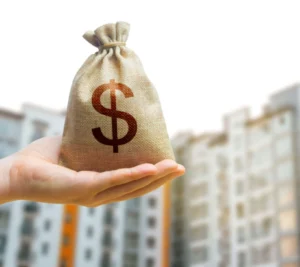

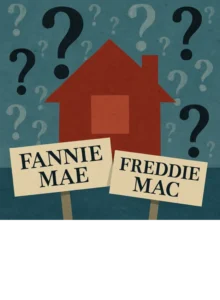
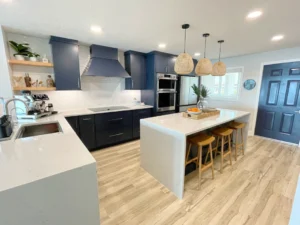
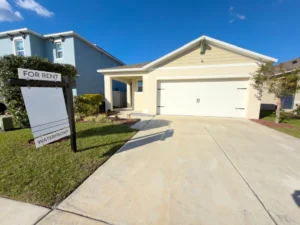

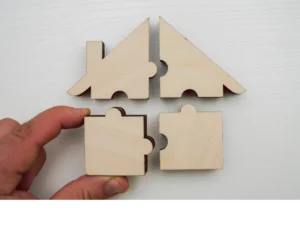
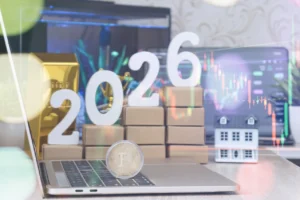




 Accessibility
Accessibility